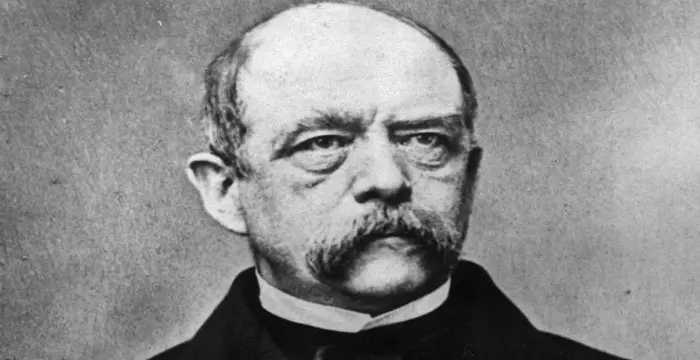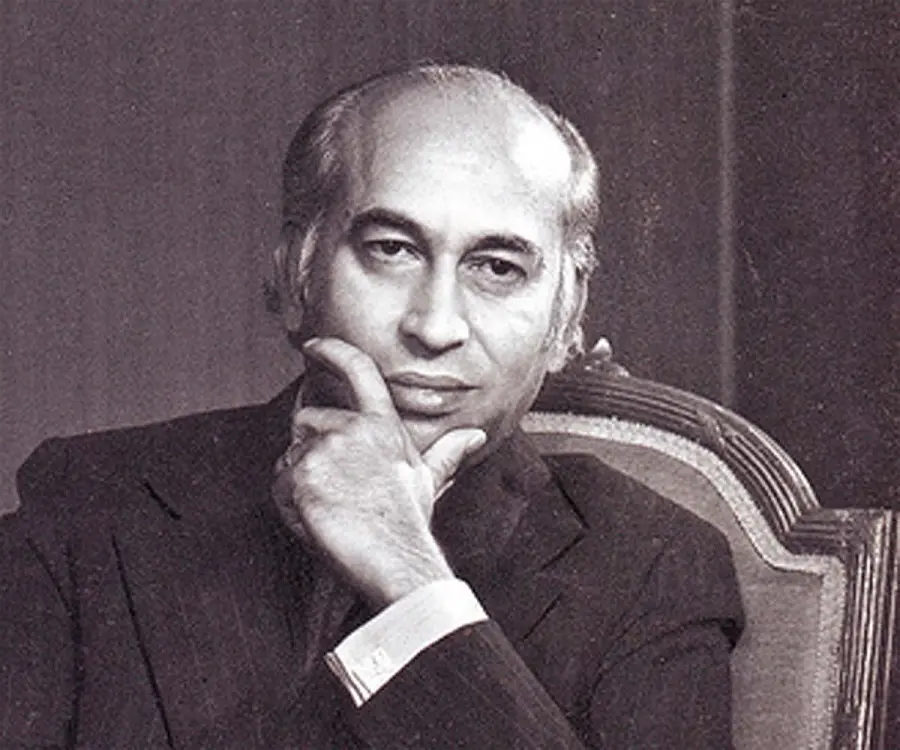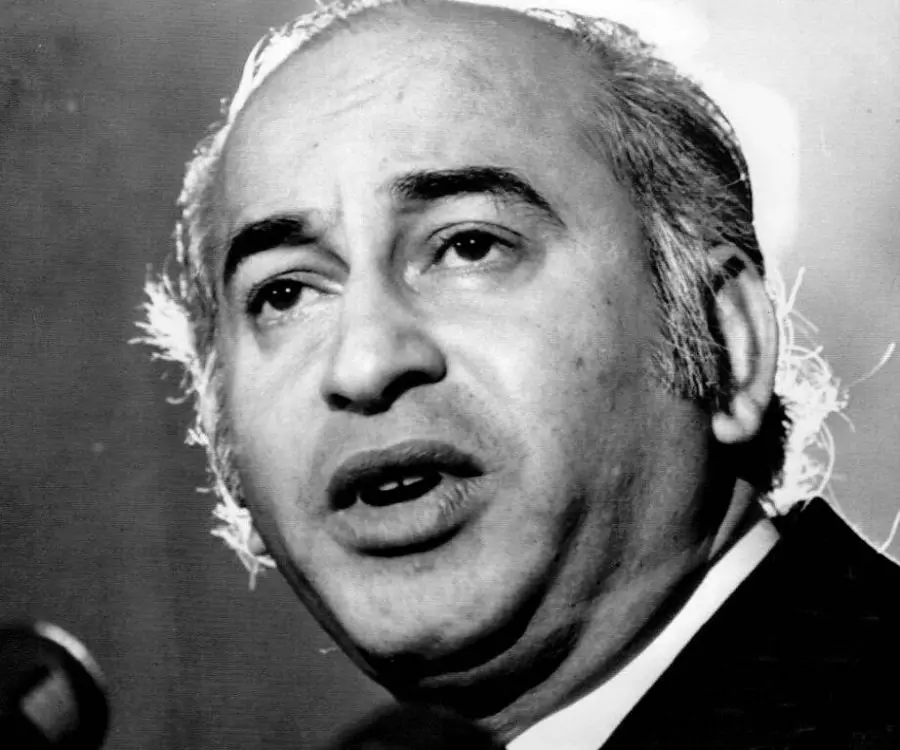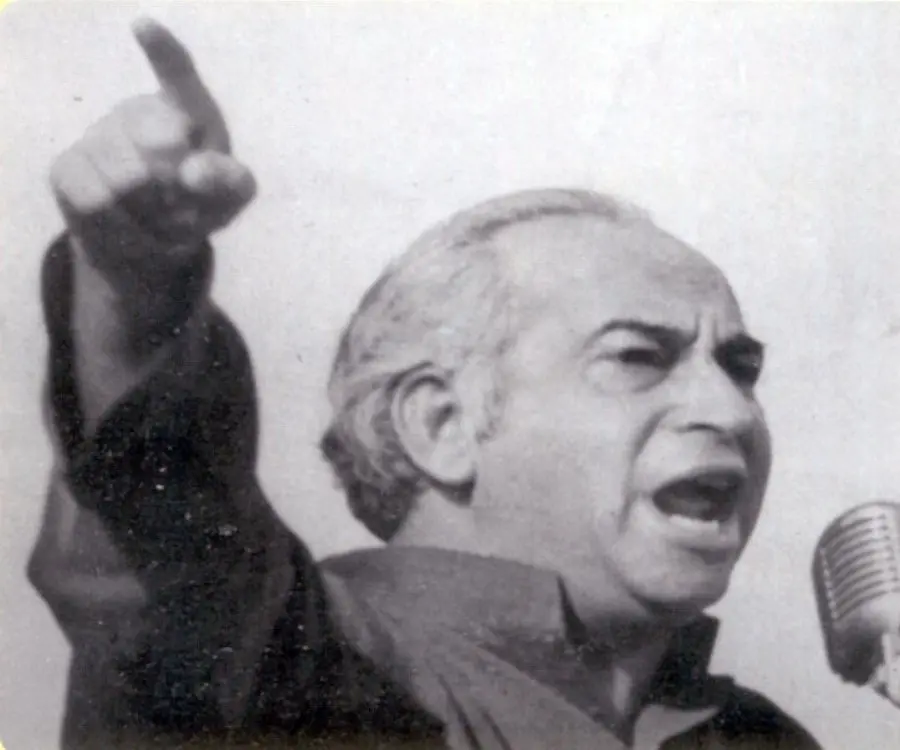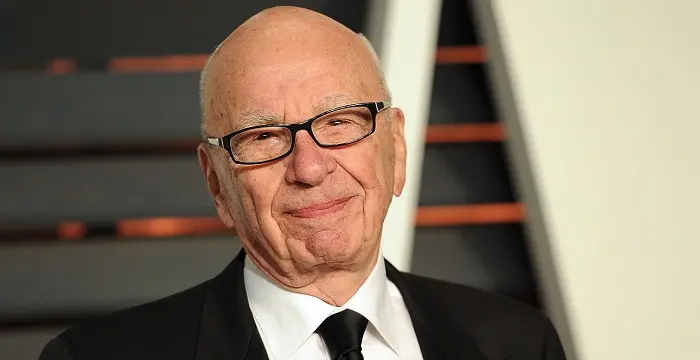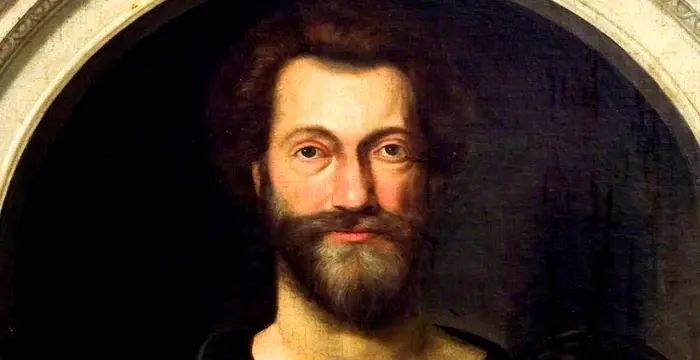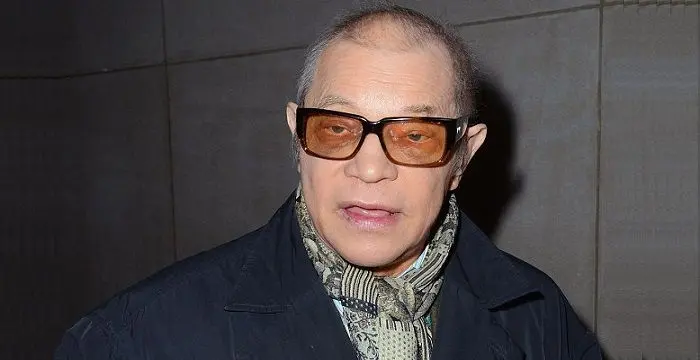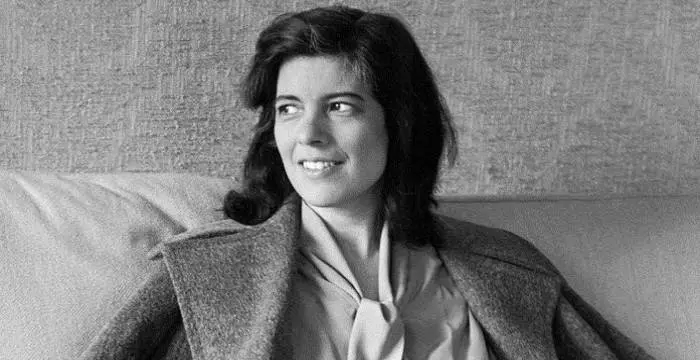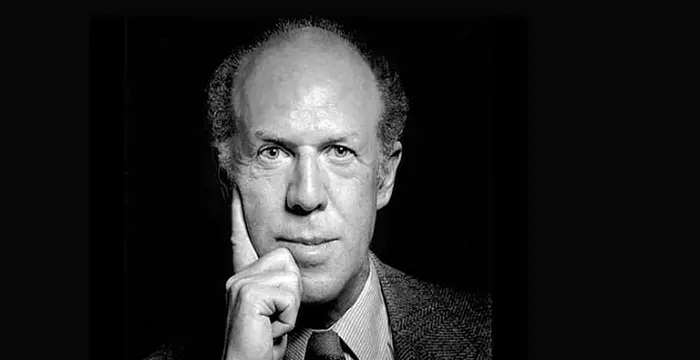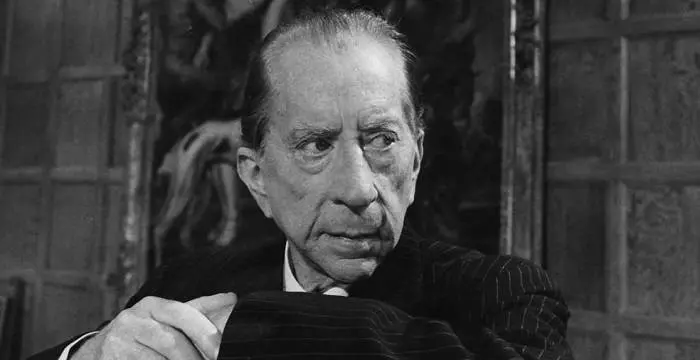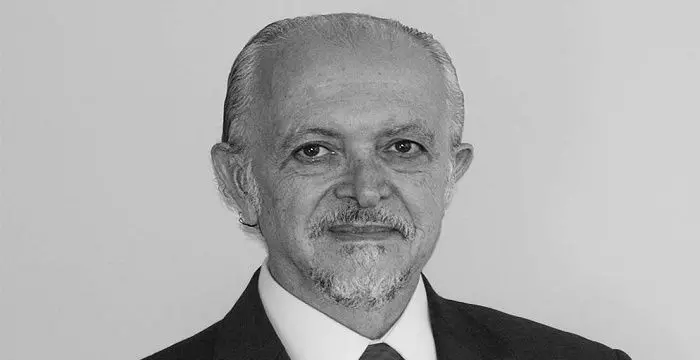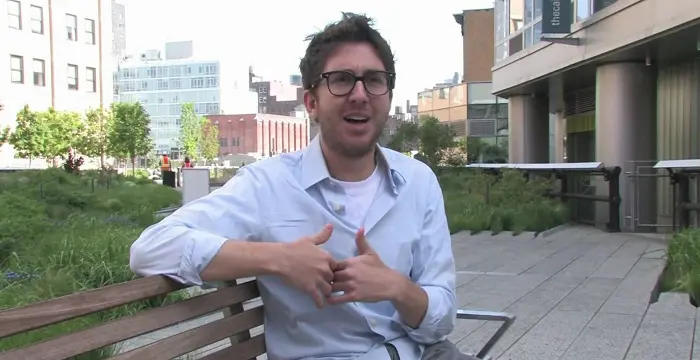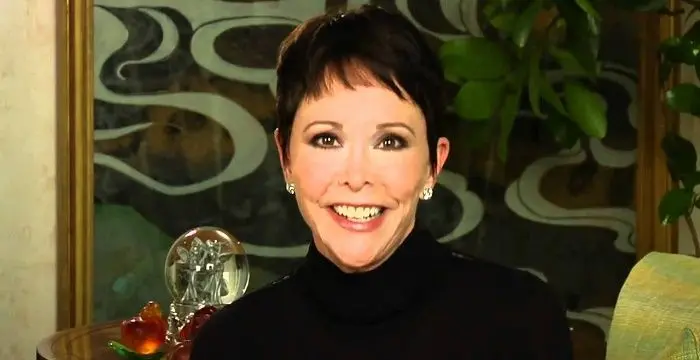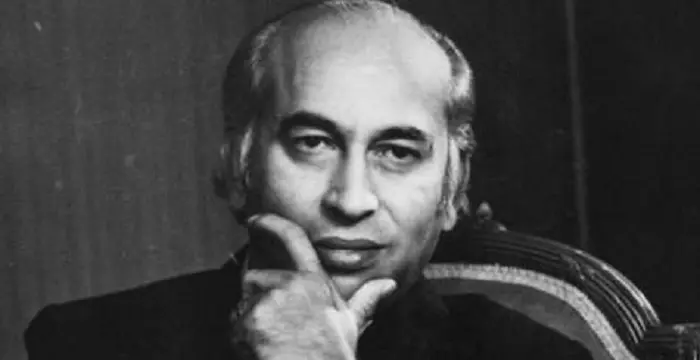
Zulfikar Ali Bhutto - Leaders, Family and Childhood
Zulfikar Ali Bhutto's Personal Details
Zulfikar Ali Bhutto served as both the President and Prime Minister of Pakistan
| Information | Detail |
|---|---|
| Birthday | January 5, 1928 |
| Died on | April 4, 1979 |
| Nationality | Pakistani |
| Famous | Oxford University, University Of California, Berkeley, Leaders, Presidents, Prime Ministers |
| Spouses | Nusrat Bhutto (m. 1951) |
| Siblings | Imdad Ali Bhutto, Mumtaz Bhutto, Sikandar Ali Bhutto |
| Childrens | Benazir, Murtaza, Sanam, Shahnawaz |
| Universities |
|
| Notable Alumnis |
|
| Founder / Co-Founder |
|
| Cause of death |
|
| Birth Place | Larkana |
| Political Ideology | Pakistan People's Party |
| Religion | Islam |
| Gender | Male |
| Father | Shah Nawaz Bhutto |
| Mother | Khursheed Begum Bhutto |
| Sun Sign | Capricorn |
| Born in | Larkana |
| Died at Age | 51 |
// Famous Prime Ministers
Edi Rama
Edi Rama is the current Prime Minister of Albania. Check out this biography to know about his childhood, life, achievements, works & timeline.
Leo Varadkar
Cam Leo Varadkar is the current Taoiseach—the Prime Minister—of the Republic of Ireland. Check out this biography to know about his childhood, family life, achievements and other facts about his life.
Otto von Bismarck
Otto von Bismarck served as the Chancellor of Germany and the Prime Minister of Prussia. He unified the German states into a powerful German empire. This biography profiles his childhood, political career, life, achievements and timeline.
Zulfikar Ali Bhutto's photo
Who is Zulfikar Ali Bhutto?
Founder of Pakistan People’s Party, Zulfikar Ali Bhutto was a prominent politician, who brought about numerous reforms and changes in the governance of Pakistan, thereby taking it from a presidentially-led country to a parliamentary-led one. It was under his democratic premiership that the country witnessed the declaration of Pakistan's third 1973 constitution. Furthermore, Bhutto led Pakistan’s nuclear weapon programme, despite several shortcomings in the form of limited financial resources and strong western oppositions and is thus regarded as the Father of Nuclear Weapons Program in Pakistan. It was his strong personality clubbed with his aggressive nature and immense determination that made him the country’s greatest civilian leader, with him dominating almost the entire decade of the 70s. Born in a political environment, he rose to prominence as a leader soon enough. He served two important positions for the country, that of the 4th President from 1971 until 1973 and 9th Prime Minister from 1973 to 1977. Till date, he remains one of most controversial leaders of the country. In the following lines, we have provided detailed information about the childhood, life, profile and political pursuits of Zulfikar Ali Bhutto. Read on.
// Famous Oxford University
Rupert Murdoch
Rupert Murdoch is a renowned Australian business magnate famous for his establishment, ‘News Corporation’ in the US. Read on for detailed information about his childhood, profile, career and timeline
John Donne
John Donne was a famous English poet, satirist, lawyer and priest of his time. Check out this biography to know about his childhood, family life, achievements and other facts related to his life.
Michael York
Michael York is a famous English actor who has enjoyed a busy and varied career in both, television and film. Explore this biography to learn more about his profile, childhood, life and timeline.
Childhood & Early Life
Zulfikar Ali Bhutto was born to Sir Shah Nawaz Bhutto and Khursheed Begum nee Lakhi Bai, in Larkana, Sindh in present day Pakistan. His father was the prime minister of the erstwhile Junagadh estate.
He studied at Cathedral and John Connon School in Bombay (present day Mumbai). Growing in a prominent political family, politics ran in the blood of this young lad. As such, while at school, he became a student activist and made valuable contribution in the social movement and nationalistic league.
He enrolled himself at the University of Southern California in 1947 to study political science. Two years later, he was transferred to the University of California, Berkeley from where he attained his graduation degree.
In 1950, he moved to United Kingdom to study law at Christ Church. By 1953, he had attained an LLB degree followed by an LLM degree in Law and M. Sc in Political Science.
His first vocation was that of a lecturer at the Sindh Muslim College. After the death of his father, he took over the management of his family's estate and business interests.
Political Career
In 1957, he became the youngest member of Pakistan's delegation to the United Nations. Following year, he led Pakistan delegation to the inaugural United Nations Conference on the Law of the Sea.
His political career met with a breakthrough when he was appointed as a cabinet minister in the Ministry of Water and Power in 1958 by Field Marshal Ayub Khan.
In 1960, he was given the charge of the Ministry of Commerce, Communications and Industry.
In 1963, he was appointed Foreign Minister of the country. In this capacity, he worked to build close ties with China and sought to achieve greater independence from the western influence. It was his aggressive approach and style that earned him national prominence and popularity.
He was highly. critical of the Tashkent agreement between Pakistan President Ayub Khan and Indian Prime Minister Lal Bhahadur Shastri in the aftermath of 1965 Indo-Pak war. Under the agreement, both the nations agreed to exchange prisoners of war and withdraw respective forces to pre-war boundaries. In protest against the agreement, Bhutto resigned from the cabinet in June 1966.
In 1967, he established Pakistan People’s Party, along with Dr. Mubashir Hassan, J.A. Rahim and Basit Jehangir Sheikh. The party became a part of the pro-democratic movement and denounced Ayub Khan’s regime as a dictatorship, demanding his resignation.
Following the stepping down of the Ayub Khan, elections were held in 1970. Though the PPP party gathered much support from the West Pakistan, it wasn’t enough as in East Pakistan Sheikh Mujib's Awami League received twice as many votes as PPP.
Bhutto refused to accept an Awami League government and demanded that Sheikh Mujib form a coalition with the PPP. Sheikh Mujib didn't accepted this proposal and declared independence. This resulted in widespread violence and civil war. The result of the war was the emergence of Bangladesh as an independent state.
The defeat resulted in the stepping down of President Yahya Khan and Bhutto became the President and the first civilian Chief Martial Law Administrator of Pakistan on December 20, 1971.
During his term as the President, he uplifted the state of emergency, thus allowing opposition governments to be formed. His main aim was to eliminate poverty and revitalise the economy, industry and agriculture.
He formed a new Constitution for the country, changing it from a presidential system to a parliamentary one, wherein the President was only a figurehead and the administrative power lay with the Prime Minister
Securing a total of 108 votes from 146 members, he took up the position of the Prime Minister of Pakistan on August 14, 1973. In his five years of term, he made extensive reforms changing the capitalistic and western policy to a socialistic system.
While his constitutional reforms of 1973 shaped the future of politics of the country, his domestic reforms gave the downtrodden a voice, radically changing the economic condition of the country in their favour.
He worked for the improvement of workers' rights and nationalized several key industries including banking sector. He made revolutionary effort to expand education during his rule. A large number of schools and colleges were built. The establishment of world-class Quaid-e-Azam University and Gomal University have been credited to him.
He brought about several land reforms empowering the small scale farmer. He aimed to make the country self-sufficient. He established Federal Flood Commission, which was tasked to prepare national flood protection plans, and flood forecasting and research to harness floodwater
As his term progressed, he became increasingly unpopular and garnered criticism for being the mastermind behind the murder of opposition leader Ahmad Raza Kasuri's father. Surprisingly, his own party members also revolted against him.
In 1977, opposition parties joined hands to form Pakistan National Alliance (PNA). Bhutto called for fresh elections and though PNA lost the elections they claimed that the elections were rigged and boycotted provisional elections. They further announced the PPP led government as illegitimate.
Political and civil unrest led to negotiation amongst the PPP and PNA leaders. Though fresh elections were called, Bhutto was arrested by troops on July 5, 1977 under the order of General Zia-ul-Haq. Martial law was enforced in the Pakistan and the constitution was suspended.
Bhutto was tried for his role in the conspiracy to murder of of opposition leader Ahmad Raza Kasuri's father. Bhutto was held guilty of murder and was sentenced to death.
Personal Life & Legacy
He married twice in his lifetime. The first was in the year 1943 to Shireen Amir Begum. However, he left her to remarry Begum Nusrat Ispahani on September 8, 1951. The couple was blessed with four children.
The trial of a murder case in which he was charged guilty lasted for several months. The Supreme Court issued a verdict in which he was labelled guilty. Despite petitions and international clemency claims, he was hanged at Central Jail, Rawalpindi, on April 4, 1979. He was buried at Garhi Khuda Baksh in a village cemetery.
He has been voted as Pakistan’s one of the few greatest leader, after Mohammad Jinnah, founder of Pakistan and Imran Khan cricketer-turned-politician. His supporters’ bestowed upon him the title Quaid-e-Awam (Leader of the people).
Trivia
He was the founder of Pakistan People’s Party. He served as the President and Prime Minister of Pakistan from 1971 to 1973 and 1973 to 1977 respectively.
He is known as the Father of the Pakistan's Nuclear weapons program.
// Famous Leaders
Edi Rama
Edi Rama is the current Prime Minister of Albania. Check out this biography to know about his childhood, life, achievements, works & timeline.
Tecumseh
Tecumseh was a Native American leader of the Shawnee clan. This biography profiles his childhood, life and timeline.
Khalifa bin Zayed Al Nahyan
Sheikh Khalifa bin Zayed Al Nahyan is the current President of the United Arab Emirates (UAE). Check out this biography to know about his birthday, childhood, family life, achievements and fun facts about him.
Zulfikar Ali Bhutto biography timelines
- // 5th Jan 1928Zulfikar Ali Bhutto was born to Sir Shah Nawaz Bhutto and Khursheed Begum nee Lakhi Bai, in Larkana, Sindh in present day Pakistan. His father was the prime minister of the erstwhile Junagadh estate.
- // 1947He enrolled himself at the University of Southern California in 1947 to study political science. Two years later, he was transferred to the University of California, Berkeley from where he attained his graduation degree.
- // 1950 To 1953In 1950, he moved to United Kingdom to study law at Christ Church. By 1953, he had attained an LLB degree followed by an LLM degree in Law and M. Sc in Political Science.
- // 1957In 1957, he became the youngest member of Pakistan's delegation to the United Nations. Following year, he led Pakistan delegation to the inaugural United Nations Conference on the Law of the Sea.
- // 1958His political career met with a breakthrough when he was appointed as a cabinet minister in the Ministry of Water and Power in 1958 by Field Marshal Ayub Khan.
- // 1960In 1960, he was given the charge of the Ministry of Commerce, Communications and Industry.
- // 1963In 1963, he was appointed Foreign Minister of the country. In this capacity, he worked to build close ties with China and sought to achieve greater independence from the western influence. It was his aggressive approach and style that earned him national prominence and popularity.
- // 1966He was highly. critical of the Tashkent agreement between Pakistan President Ayub Khan and Indian Prime Minister Lal Bhahadur Shastri in the aftermath of 1965 Indo-Pak war. Under the agreement, both the nations agreed to exchange prisoners of war and withdraw respective forces to pre-war boundaries. In protest against the agreement, Bhutto resigned from the cabinet in June 1966.
- // 1967In 1967, he established Pakistan People’s Party, along with Dr. Mubashir Hassan, J.A. Rahim and Basit Jehangir Sheikh. The party became a part of the pro-democratic movement and denounced Ayub Khan’s regime as a dictatorship, demanding his resignation.
- // 1970Following the stepping down of the Ayub Khan, elections were held in 1970. Though the PPP party gathered much support from the West Pakistan, it wasn’t enough as in East Pakistan Sheikh Mujib's Awami League received twice as many votes as PPP.
- // 20th Dec 1971The defeat resulted in the stepping down of President Yahya Khan and Bhutto became the President and the first civilian Chief Martial Law Administrator of Pakistan on December 20, 1971.
- // 14th Aug 1973While his constitutional reforms of 1973 shaped the future of politics of the country, his domestic reforms gave the downtrodden a voice, radically changing the economic condition of the country in their favour.
- // 1977In 1977, opposition parties joined hands to form Pakistan National Alliance (PNA). Bhutto called for fresh elections and though PNA lost the elections they claimed that the elections were rigged and boycotted provisional elections. They further announced the PPP led government as illegitimate.
- // 1977Political and civil unrest led to negotiation amongst the PPP and PNA leaders. Though fresh elections were called, Bhutto was arrested by troops on July 5, 1977 under the order of General Zia-ul-Haq. Martial law was enforced in the Pakistan and the constitution was suspended.
- // 4th Apr 1979The trial of a murder case in which he was charged guilty lasted for several months. The Supreme Court issued a verdict in which he was labelled guilty. Despite petitions and international clemency claims, he was hanged at Central Jail, Rawalpindi, on April 4, 1979. He was buried at Garhi Khuda Baksh in a village cemetery.
// Famous University Of California, Berkeley
Susan Sontag
Susan Sontag is an American critical essayist, cultural analyst, novelist, political activist, filmmaker and playwright of international repute. Read on to find out more about her childhood, career, profile and timeline.
Gerard Debreu
Gerard Debreu was a French-born American economist who brought mathematical precision to economics. Check out this biography to know about his childhood, family life, achievements and other facts related to his life.
J. Paul Getty
J. Paul Getty was an American billionaire businessman and president of the Getty Oil Company. This biography offers detailed information about his childhood, life, career and timeline.
Mario J. Molina
Mario Molina is a Nobel Prize winning chemist from Mexico who co-developed the theory of ozone depletion due to CFCs. To know more about his childhood, career, profile and timeline read on.
Amir Blumenfeld
Amir Shmuel Blumenfeld is an American actor, script writer and comedian of Jewish origin. This biography profiles his childhood, family, career, personal life, achievements and gives some fun facts.
Vicki Iovine
Vicki Iovine is an American author, model, and lawyer. Check out this biography to know about her childhood, family life, achievements and fun facts about her.
Zulfikar Ali Bhutto's FAQ
What is Zulfikar Ali Bhutto birthday?
Zulfikar Ali Bhutto was born at 1928-01-05
When was Zulfikar Ali Bhutto died?
Zulfikar Ali Bhutto was died at 1979-04-04
Where was Zulfikar Ali Bhutto died?
Zulfikar Ali Bhutto was died in Rawalpindi
Which age was Zulfikar Ali Bhutto died?
Zulfikar Ali Bhutto was died at age 51
Where is Zulfikar Ali Bhutto's birth place?
Zulfikar Ali Bhutto was born in Larkana
What is Zulfikar Ali Bhutto nationalities?
Zulfikar Ali Bhutto's nationalities is Pakistani
Who is Zulfikar Ali Bhutto spouses?
Zulfikar Ali Bhutto's spouses is Nusrat Bhutto (m. 1951)
Who is Zulfikar Ali Bhutto siblings?
Zulfikar Ali Bhutto's siblings is Imdad Ali Bhutto, Mumtaz Bhutto, Sikandar Ali Bhutto
Who is Zulfikar Ali Bhutto childrens?
Zulfikar Ali Bhutto's childrens is Benazir, Murtaza, Sanam, Shahnawaz
What was Zulfikar Ali Bhutto universities?
Zulfikar Ali Bhutto studied at Oxford University,University Of California, Berkeley, Christ Church, Oxford, University of California, Berkeley, University of Southern California, Cathedral and John Connon School, University of Oxford
What was Zulfikar Ali Bhutto notable alumnis?
Zulfikar Ali Bhutto's notable alumnis is Oxford University, University Of California, Berkeley
Which company or organization was founded by Zulfikar Ali Bhutto?
Zulfikar Ali Bhutto was the founder/co-founder of Pakistan People's Party, Pakistan's atomic bomb programme
What is Zulfikar Ali Bhutto's cause of dead?
Zulfikar Ali Bhutto dead because of Execution
What is Zulfikar Ali Bhutto's political ideology?
Zulfikar Ali Bhutto's political ideology is Pakistan People's Party
What is Zulfikar Ali Bhutto's religion?
Zulfikar Ali Bhutto's religion is Islam
Who is Zulfikar Ali Bhutto's father?
Zulfikar Ali Bhutto's father is Shah Nawaz Bhutto
Who is Zulfikar Ali Bhutto's mother?
Zulfikar Ali Bhutto's mother is Khursheed Begum Bhutto
What is Zulfikar Ali Bhutto's sun sign?
Zulfikar Ali Bhutto is Capricorn


